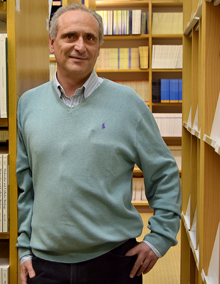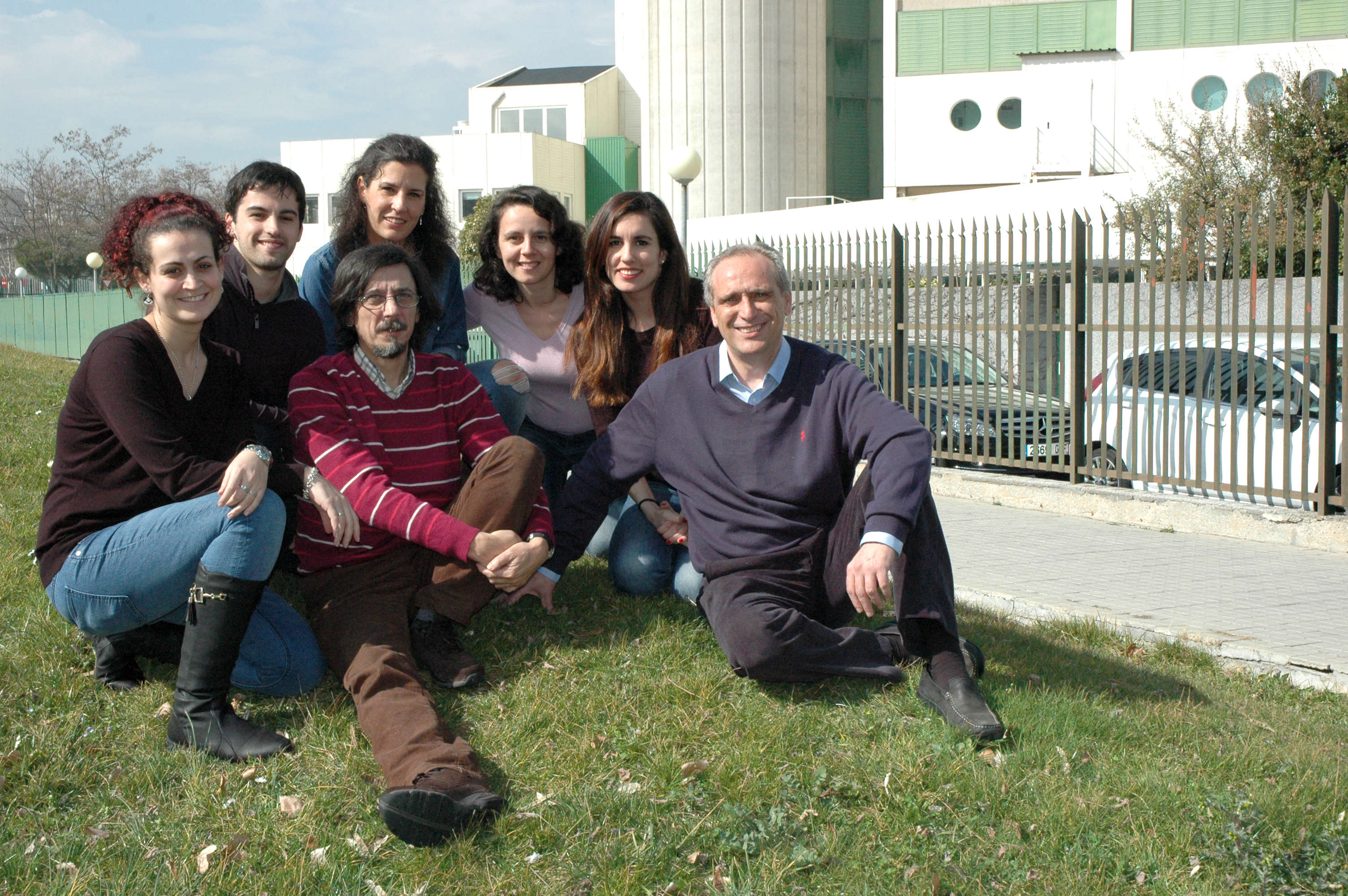Antonio Bernad Miana
Group Leader
Research summary
Our group focusses on the study of multipotent cardiac progenitor cells (CPC) isolated from adult heart, although precise understanding of cardiac precursor and stem cell biology is still lacking. This is a critical step toward developing more rational strategies to fight against cardiovascular disease.
Publications
Herrero D, Tomé M, Cañón S, Cruz FM, Carmona RM, Fuster E, Roche E, Bernad A. Redox-dependent BMI1 activity drives in vivo adult cardiac progenitor cell differentiationRedox-dependent BMI1 activity drives in vivo adult cardiac progenitor cell differentiation. Cell Death Differ. 2018 Jan 11. doi: 10.1038/s41418-017-0022-2.
Valiente-Alandi I, Albo-Castellanos C, Herrero D, Sanchez I, Bernad A. Bmi1+ cardiac progenitor cells contribute to myocardial repair following acute injury Stem Cell Res Ther 2016; 7:100
Cañón S, Caballero R, Herraiz-Martínez A, Pérez-Hernández M, López B, Atienza F, Jalife J, Hove-Madsen L, Delpón E, Bernad. A miR-208b upregulation interferes with calcium handling in HL-1 atrial myocytes: Implications in human chronic atrial fibrillation. J. Mol. Cell Cardiol 2016; 99:162-73
Barreiro O, Cibrian D, Clemente C, Alvarez D, Moreno V, Valiente Í, Bernad A, Vestweber D, Arroyo AG, Martín P, von Andrian UH, Sánchez Madrid F. Pivotal role for skin trans-endothelial radio-resistant anti-inflammatory macrophages in tissue repair. eLife 2016; 5:e15251
Valiente-Alandi I, Albo-Castellanos C, Herrero D, Arza E, Garcia-Gomez M, Segovia JC, Capecchi M, Bernad A. Cardiac Bmi1+ cells contribute to myocardial renewal in the murine adult heart. Stem Cell Res Ther 2015; 6:205
 Myocardial infarction is one of the major challenges facing health care systems in developed countries. Its treatment, despite recent advances, remains a serious problem and requires multidisciplinary approaches. Adult organ function depends on the concerted, regulated action of specialized stem cells. Our group focusses on the study of multipotent cardiac progenitor cells (CPC) isolated from adult heart, although precise understanding of cardiac precursor and stem cell biology is still lacking. This is a critical step toward developing more rational strategies to fight against cardiovascular disease.
Myocardial infarction is one of the major challenges facing health care systems in developed countries. Its treatment, despite recent advances, remains a serious problem and requires multidisciplinary approaches. Adult organ function depends on the concerted, regulated action of specialized stem cells. Our group focusses on the study of multipotent cardiac progenitor cells (CPC) isolated from adult heart, although precise understanding of cardiac precursor and stem cell biology is still lacking. This is a critical step toward developing more rational strategies to fight against cardiovascular disease.
Human CPC (also mouse and pig) have been characterised as MSC (mesenchymal stem cells)-like populations. Partial hCPC membrane proteomic analysis allowed the definition of more than 30 relevant functions especially associated with adult stem cell biology. We demonstrated that podocalyxin-like protein 1 (PODXL) regulates hCPC activation, migration and differentiation, and also modulates their local immunoregulatory capacity (Moscoso et al. 2013). In the last two years, we have been involved in an intensive collaborative European effort (CAREMI) for the molecular characterisation of hCPC using complementary high-throughput platforms (global proteomics, ITRAQ, RNAseq). In summary, we have identified 9.943 proteins, of which 25.3% are exclusive to or preferentially expressed in hCPC.
In 2014, an international clinical trial (Ia-IIb) was launched to evaluate the therapeutic potential of hCPC in acute myocardial infarct. At the moment, the escalation phase has concluded (6 patients) and the final phase (49 additional patients) is under way.
In mouse models, we demonstrated that the transcriptional factor Bmi-1 (a member of the polycomb family) is an important marker of mouse CPC (mCMC). The Bmi-1+ CMC population (B-CPC) contributes to homeostatic cardiomyocyte turnover and repair after acute injury, and fulfils the criteria for denomination as long-term cardiac resident stem cells. B CPC are distributed throughout the entire myocardium, forming small groups of cells found preferentially in perivascular locations or embedded in sarcomers. We are currently studying the distinct stimuli that affect the biological responses of B-CPC in vivo, as well as its importance in heart turnover and functional demonstration of candidate pathways identified by differential RNAseq analysis.









